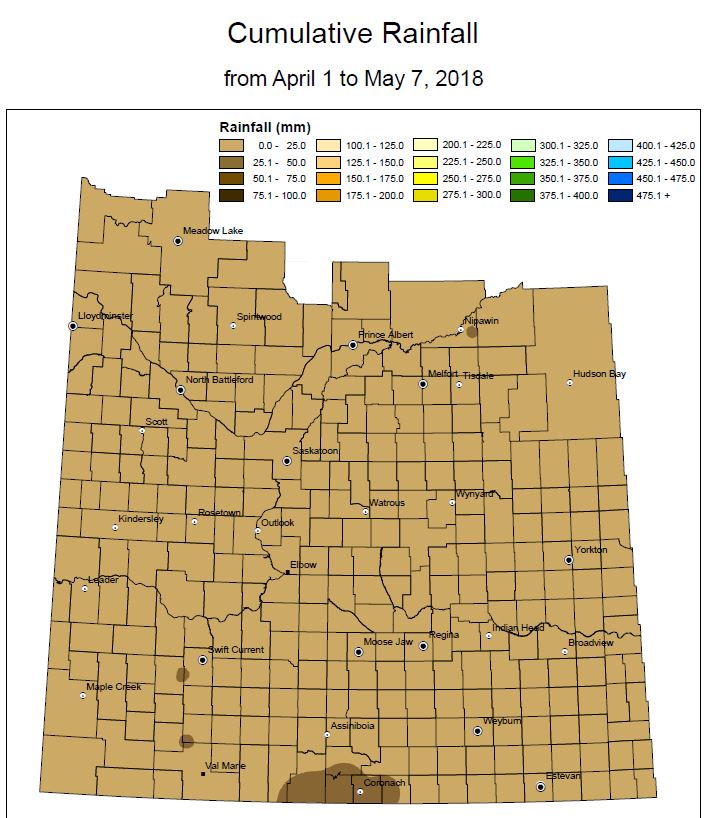Southern Saskatchewan along with areas in central parts of the province received rain on May 8.

Prior to that moisture, most areas had received little to no rain this spring.
According to Saskatchewan Agriculture crop extension specialist Shannon Friesen, 30 per cent of the province’s crop land is short or extremely short of topsoil moisture.
While rainfall has helped, more is needed to restore moisture to a level considered adequate for germinating a crop.
“What our biggest issue potentially going into the summer will be is if we have enough subsoil moisture. That’s the moisture that’s kind of below that top six inches where the roots will actually grow later on in the season,” Friesen said.

Get daily National news
Seeding in Saskatchewan remains behind the five-year average of 19 per cent for this time of year, with just nine per cent of crop in the ground.
The south of the province is furthest along while all of central and northern Saskatchewan are lagging as producers wait for the soil to warm.
With the threat of a surcharge on fossil fuels as part of Bill C-74, farmers fear their profit margins may narrow even further.
The Agriculture Producers Association of Saskatchewan (APAS) said everything from twine, to grain bags, to seed would likely cost farmers more if the surcharge were added as part of carbon taxing.
“We’re not burning electricity or diesel fuel or any other product without putting it toward food production and the only way we’re going to lower our energy footprint is to produce less food and I don’t think anybody wants to see that,” said APAS president Todd Lewis.
Lewis was in Ottawa this week voicing the concerns of Saskatchewan producers to the Senate’s agriculture committee in an attempt to have Ottawa reconsider its carbon tax.
The province is challenging the tax with a reference case before the Saskatchewan Court of Appeal for a determination on whether a federally imposed carbon tax is constitutional.



Comments
Want to discuss? Please read our Commenting Policy first.